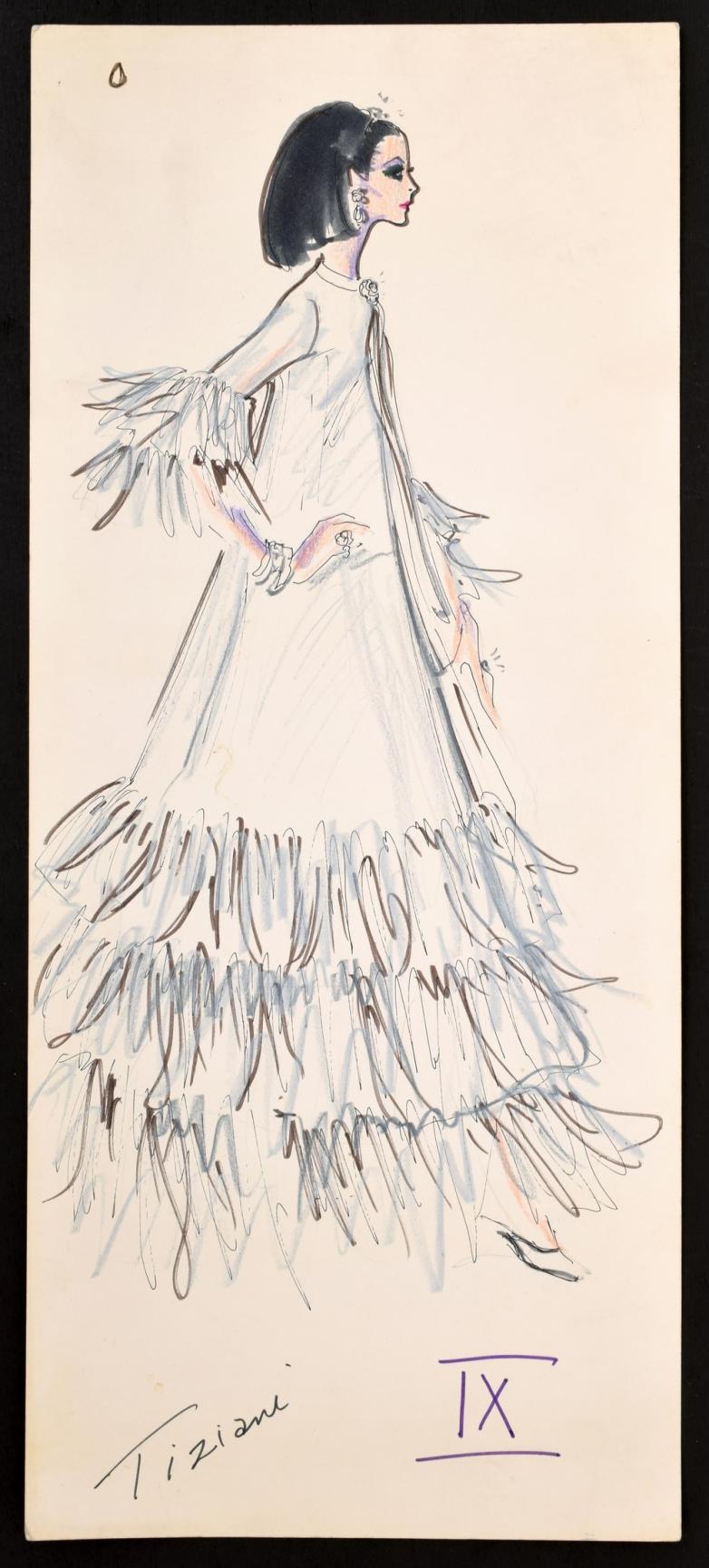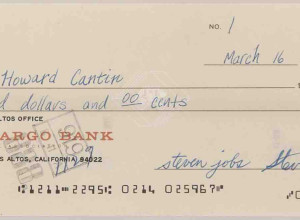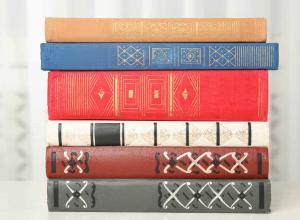John Updike

It was twenty-five years ago this month, almost to the day, that I heard John Updike give a talk about books and reading that resonates with me as if he had delivered it yesterday. The occasion was the annual meeting of the National Book Critics Circle in New York, and Updike--who died this week at seventy-six--was on hand to accept an award for best work of literary criticism, a wonderful collection he had titled "Hugging the Shore."
Updike was very gracious that night to the assembled book critics, who all looked up to him, I must say, as visiting royalty, which as America's outstanding man of letters, he pretty much was. His talk, which lasted no more than ten minutes, was directed at what he called the "casual readers" among us. After taking a mild whack at the fickleness of literary fame and the unfairness of bestseller lists, he concluded with a plea for everyone to seek out from time to time "the underpublished wall flower on the edge of the dance floor and giving her a twirl, by reminding ourselves that literary delights are rarefied delights, that today's blockbuster is tomorrow's insulation, that books are at best a beacon in the darkness but at second-best a holiday that lasts and lasts." The New York Times published the full text of his remarks a couple weeks later; those interested in savoring it all can read it at this link.
Updike was always on my short list of authors I most wanted to interview for my weekly literary column, but he had a reputation for not talking too much to journalists about his writing, especially if the subject dealt with his many works of the imagination. His feeling, quite correctly, I think, was that fiction should pretty much speak for itself, though he did, from time to time, give some outstanding interviews, one, of particular merit, early in his career with the Paris Review.
But in 1996, I got my chance, and leaped at the opportunity offered by an Alfred A Knopf publicist. Updike had just published a charming little book of essays and magazine pieces he had written over the years about golf--the one abiding passion he had away from his typewriter. We met in Boston for lunch, had a splendid conversation, and I got my story (which is posted on my web site); true to form, I also brought along some books for him to inscribe--the book we had met to discuss, of course, "Golf Dreams," but also "Rabbit is Rich," and "Trust Me," a collection of short stories. I have to say that what delighted me most of all about the ninety minutes we spent together was that he knew my book, "A Gentle Madness," which had been published the previous year, and that he had enjoyed the brief segment I had written about his wonderful continuing character, the fictional novelist Henry Bech, "who had his friends, his fans, even his collectors." (See AGM, pp. 54-55.)
I was already a serious Updike collector at that point, but I became even more determined after that, and am pleased to say that I have all of his trade books--and we are talking well over forty published volumes--except for that still elusive first book of his, "The Carpentered Hen." What easily is my favorite Updike item, however, not any of these books, nor many dozen limited edition fine press titles he has authorized over the years, but a piece of ephemera I got on December13, 2001--for me, it was a lucky Friday 13th--at Boston Athenaeum, one of the world's great membership libraries.
The occasion was a reception arranged by Luke Ives Pontifell, owner of the Thornwillow Press, to announce the forthcoming release of a limited edition book he was publishing of three Updike stories, to be be printed by letterpress on hand-made paper, bound in leather, and issued in an edition of 250 signed and numbered copies--$650 each if ordered in advance of publication, $850 afterward. A prospectus with all of the salient information printed on beautiful paper was stacked on a table near the lovely hors d'oeuvres that had been spread out. I helped myself to a couple of them, and walked up to Updike, who was enjoying a glass of red wine by himself in a corner of the room. "Ah, the bookman," he said with abundant good cheer, and wrote a lovely inscription on one of them, which I share with you herewith.
There is a poem in Tuesday's New York Times, "Requiem," taken from Updike's forthcoming collection, "Endpoint and Other Poems," to be published by Knopf. "For life's a a shabby subterfuge," he writes: "And death is real, and dark, and huge."
Updike was very gracious that night to the assembled book critics, who all looked up to him, I must say, as visiting royalty, which as America's outstanding man of letters, he pretty much was. His talk, which lasted no more than ten minutes, was directed at what he called the "casual readers" among us. After taking a mild whack at the fickleness of literary fame and the unfairness of bestseller lists, he concluded with a plea for everyone to seek out from time to time "the underpublished wall flower on the edge of the dance floor and giving her a twirl, by reminding ourselves that literary delights are rarefied delights, that today's blockbuster is tomorrow's insulation, that books are at best a beacon in the darkness but at second-best a holiday that lasts and lasts." The New York Times published the full text of his remarks a couple weeks later; those interested in savoring it all can read it at this link.
Updike was always on my short list of authors I most wanted to interview for my weekly literary column, but he had a reputation for not talking too much to journalists about his writing, especially if the subject dealt with his many works of the imagination. His feeling, quite correctly, I think, was that fiction should pretty much speak for itself, though he did, from time to time, give some outstanding interviews, one, of particular merit, early in his career with the Paris Review.
But in 1996, I got my chance, and leaped at the opportunity offered by an Alfred A Knopf publicist. Updike had just published a charming little book of essays and magazine pieces he had written over the years about golf--the one abiding passion he had away from his typewriter. We met in Boston for lunch, had a splendid conversation, and I got my story (which is posted on my web site); true to form, I also brought along some books for him to inscribe--the book we had met to discuss, of course, "Golf Dreams," but also "Rabbit is Rich," and "Trust Me," a collection of short stories. I have to say that what delighted me most of all about the ninety minutes we spent together was that he knew my book, "A Gentle Madness," which had been published the previous year, and that he had enjoyed the brief segment I had written about his wonderful continuing character, the fictional novelist Henry Bech, "who had his friends, his fans, even his collectors." (See AGM, pp. 54-55.)
I was already a serious Updike collector at that point, but I became even more determined after that, and am pleased to say that I have all of his trade books--and we are talking well over forty published volumes--except for that still elusive first book of his, "The Carpentered Hen." What easily is my favorite Updike item, however, not any of these books, nor many dozen limited edition fine press titles he has authorized over the years, but a piece of ephemera I got on December13, 2001--for me, it was a lucky Friday 13th--at Boston Athenaeum, one of the world's great membership libraries.
The occasion was a reception arranged by Luke Ives Pontifell, owner of the Thornwillow Press, to announce the forthcoming release of a limited edition book he was publishing of three Updike stories, to be be printed by letterpress on hand-made paper, bound in leather, and issued in an edition of 250 signed and numbered copies--$650 each if ordered in advance of publication, $850 afterward. A prospectus with all of the salient information printed on beautiful paper was stacked on a table near the lovely hors d'oeuvres that had been spread out. I helped myself to a couple of them, and walked up to Updike, who was enjoying a glass of red wine by himself in a corner of the room. "Ah, the bookman," he said with abundant good cheer, and wrote a lovely inscription on one of them, which I share with you herewith.
There is a poem in Tuesday's New York Times, "Requiem," taken from Updike's forthcoming collection, "Endpoint and Other Poems," to be published by Knopf. "For life's a a shabby subterfuge," he writes: "And death is real, and dark, and huge."

















